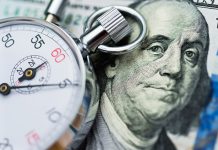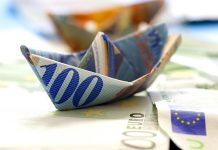Markets
ECB chief economist Lane spent most of today’s speech in Paris reminiscing on the ECB’s “successful” monetary policy response to the pandemic. He took the opportunity as net asset purchases under the Pandemic Emergency Purchase Programme officially end after today. The ECB will have bought over €1.7tn out of its €1.85tn PEPP-portfolio. This compares with around €3.2tn cumulative asset purchases under the APP-umbrella, accumulated since the end of 2014. Turning to recent developments, Lane points out that current high inflation rates reflect to a large extent a very substantial surge in energy prices and global bottlenecks for manufactured goods. Both factors, conditional on the appropriate conduct of monetary policy, should not be a source of persistent inflation. “Transitory” echoed throughout his speech. The chief economist thinks it is plausible that medium-term inflation will not revert to the pre-pandemic below-target equilibrium but rather may stabilise around the ECB’s 2% target. The ECB will nevertheless closely monitor them and make sure that high spot inflation rates won’t become entrenched in higher inflation expectations. It’s part of his two-sided guidance going forward. On the one hand, the ECB should ensure that policy settings are adjusted if de-anchored inflation expectations, an intensification in catch-up wage dynamics or a persistent deterioration in supply capacity threaten to keep inflation above target. On the other side, they should also be fully prepared to appropriately revise monetary policy settings if the energy price shock and the Russia-Ukraine war were to result in a significant deterioration in macroeconomic prospects and thereby weaken the inflation outlook. Lane, like ECB president Lagarde yesterday, attached more attention to the downside growth risks stemming from the war compared to the tone of the March 10 policy meeting.
Lane’s speech wasn’t directly responsible for today’s market moves, but added to the mood. Core bonds recovered from the fierce sell-off recently. Bunds (-5.9 bps) outperformed US Treasuries (-1.6 bps). The move started from the European bell in a reaction function which we’ve already seen on Tuesday: significantly lower oil prices dampen inflation expectations and thus the need for central banks to act even more aggressively than already priced. Today’s drop in crude prices came in response to rumours that the US will release around 1/3rd of its Strategic Petroleum Reserves in coming months. Stocks and EUR/USD (loss of interest rate support) drifted south in a move which slightly accelerated ahead of the US opening bell after Russian President Putin warned to halt gas contracts if payers don’t pay rubles. Main European indices lose up to 0.5%. EUR/USD drifted back below the 1.11 big figure. EUR/CZK fluctuates around 24.40 after the CNB raised its policy rate by 50 bps, to 5% in a 5-2 vote. Significant inflationary risks remain around the forecast with a need to keep policy tighter for a longer time.
News Headlines
According to the UK Nationwide Building Society, annual housing growth in the UK in march increased from 12.6% Y/Y to 14.3%. This marks the fastest annual pace since 2004. Prices increased 1.1% M/M. The latter was the eight consecutive monthly increase (on a seasonally adjusted basis). The report concludes that the average price of a property reached a record level of £265 312. According to Nationwide’s Chief Economist ‘the continued buoyancy of housing demand may in part be explained by strong labour market conditions. The significant savings accrued during lockdowns is also likely to have helped prospective homebuyers raise a deposit’. The society estimates that households accrued the equivalent of around £6500 deposits above the pre-pandemic trend since early 2020. In the coming quarters, NBS expects the housing market to slow down.
The Norges Bank announced that it will buy the countervalue of NOK 2bn/day in FX on behalf of the government in April. The Norwegian government receives revenues in NOK and FX from petroleum activities. Some revenues are used to finance the government deficit. The remainder is saved in FX in the Government Pension Fund Global. The amount of FX the NB announced today was bigger than expected. The NOK weakened from EUR/NOK 9.56 to 9.70.














